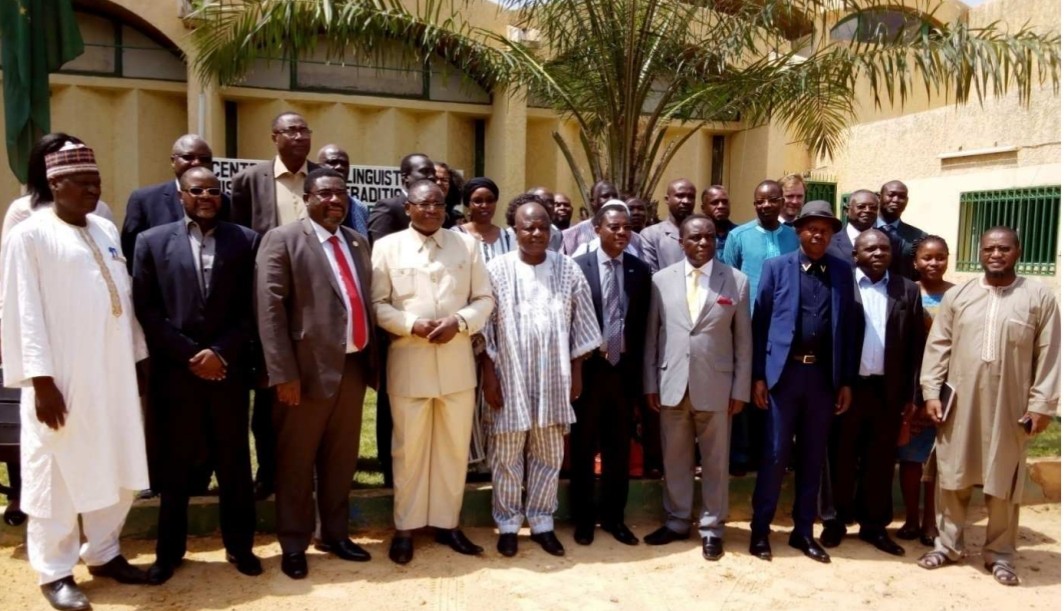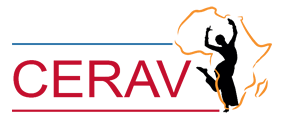
From August 28 to 30, 2017, a regional workshop was held at CELHTO-UA in Niamey (Republic of Niger) on "partnership with civil society in the implementation of the UNESCO Convention on the Protection and the promotion of the diversity of cultural expressions and the charter of African cultural renaissance: what challenges? what solution? ". Organized by the Regional Center for Living Arts in Africa (CERAV / Africa) in partnership with the Center for Linguistic and Historical Studies by Oral Traditions African Union (CELHTO-UA) and benefiting from the support of the Government of the Republic of Niger, this workshop brought together about thirty participants, representatives of cultural civil society organizations and ministries in charge of culture from 11 African countries (Benin, Burkina Faso.
Cameroon, Ivory Coast, Ghana, Mali, Mozambique, Niger, Nigeria, Democratic Republic of Congo, Togo) and two European countries (Belgium and France). This workshop was opened by the Acting Minister for Cultural Renaissance, Arts and Social Modernization of Niger in the presence of Mr. Stanislas MEDA, Secretary General of the Ministry of Culture, Arts and Tourism of Burkina Faso , representing his Minister, sponsor of this workshop, MM. TUBLU Komi N'kégbé Fogâ and Michel SABA, respectively Coordinator of CELHTO-UA and General Delegate of CERAV/AFRICA and heads of partners who supported the project to implement this workshop and whose names are: Africalia (Belgium) , Observatory of Cultural Policies in Africa (Mozambique), Culture and Development, (France), ECOWAS (Nigeria) and the Institute of African Culture and International Understanding (Nigeria). The general objective set is to deepen reflection on the mechanisms to guarantee the effective participation of civil society in the implementation of normative instruments guiding public policies in the field of culture within African States.
It is in a very good atmosphere that the work of the workshop takes place, alternating communications and debates, under the moderation of experienced cultural personalities such as Pr Lupwishi MBUYAMBA, Dr Stanislas MEDA, Secretary General of the Ministry in charge of the culture of Burkina Faso, Ambassador Filipe SAWADOGO, a great activist of intercultural and interreligious dialogue in Africa, Mrs. Valéria MARCOLLIN of the NGO Culture and Development based in Grenoble and Mr. Frédéric JACQUEMIN of the Africalia cultural cooperation agency, based in Brussels (Belgium). Papers and debates made it possible to address subjects reflecting the diversity of issues and challenges related to the development of culture in Africa in general, and specifically those playing a key role in achieving the objectives of the 2005 UNESCO Convention, the Charter for African Cultural Renaissance and the Sustainable Development Goals.
It emerges from the discussions that, to varying degrees, civil society has been actively called upon to the extent of its means. There are, however, limits related to the weak structuring of civil society organizations and their weak capacity to federate their efforts to carry out actions in synergy.
The work of the workshop showed a strong contributory potential of African cultural civil society to the appropriation, dissemination and implementation of international normative instruments such as the 2005 Convention and the Charter for African Cultural Renaissance. The participants in the workshop pledged to be key players in the implementation of the resolutions taken and in sensitizing African States for the acceleration of the ratification of the Charter for African Cultural Renaissance as well as for the implementation of the UNESCO 2005 Convention and the African Union's Agenda 2063.
At the end of the deliberations, the participants adopted a so-called declaration of
Niamey, one recommendation and four motions of thanks.
Communications Department
